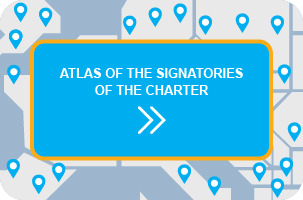Intercultural Cities Policy Brief – LGBTI Inclusion and Equality Initiatives for the Intercultural City
[From the Intercultural Cities Newsroom 17/05/2020: https://www.coe.int/en/web/interculturalcities/-/a-policy-brief-on-lgbti-inclusion-and-equality-initiatives-for-the-intercultural-city-to-mark-the-international-day-against-homophobia-and-transphobia]
With our increasingly globalised world and fast paced change occurring all around us, many Council of Europe Member States have seen a rise in anti-LGBTI sentiments, alongside racist, xenophobic and anti-minority attitudes. The intercultural integration approach advocated by the Intercultural Cities programme is rights-based. In practice, this means that at their core, all public policies should uphold the fundamental rights of all persons who reside in states parties to the European Convention of Human Rights, without exception. It also takes an asset-based approach to public policy, embodying the idea that mobility and diversity are resources for human and social development.
Intercultural Cities have therefore a moral and legal obligation to protect the human rights of all citizens and, in particular, of those who – like the citizens belonging to the LGBTI community – are at risk of discrimination, exclusion and physical violence
With the view of empowering member cities to protect the human rights of LGBTI persons, and to mark the International Day Against Homophobia and Transphobia (IDAHOT), the Intercultural Cities programme published a Policy Brief on “LGBTI Inclusion and Equality Initiatives for the Intercultural City”, prepared by the Sexual Orientation and Gender Equality (SOGI) Unit of the Council of Europe. The intention of this policy brief is to provide concrete, relevant and directly applicable planning and policy perspectives for how cities can positively impact the lives of LGBTI individuals, touching on a range of issues for policy makers and city officials regarding the LGBTI population living in urban settings, and benefitting from the experience of LGBTI movements and advocates. It also offers practical examples of how other cities have planned initiatives mindful of the diversity of LGBTI populations themselves. City-level policies shape the lives and opportunities of the LGBTI community and can have direct impacts on health outcomes, safety, wellbeing and quality of life for all residents. Initiatives to achieve these ends are as diverse as the populations they aim to serve and might include policies to ensure provision of bespoke LGBTI social services, housing provision and the creation and/or preservation of LGBTI cultural areas or facilities.















